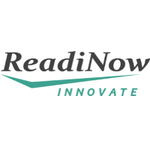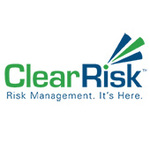Description

Hyperproof

ReadiNow
Comprehensive Overview: Hyperproof vs ReadiNow
To provide a comprehensive overview of Hyperproof, ReadiNow, and UXRisk, let's explore each product's primary functions, target markets, market share, user base, and key differentiating factors.
Hyperproof
a) Primary Functions and Target Markets
-
Primary Functions: Hyperproof is primarily a compliance and risk management software platform designed to simplify and streamline the work of compliance professionals. It offers features like automated evidence collection, control management, risk assessments, and compliance monitoring. Hyperproof helps organizations manage various frameworks like SOC 2, ISO 27001, GDPR, and more.
-
Target Markets: Hyperproof targets medium to large enterprises and compliance teams across industries that are heavily regulated or require strict compliance controls, such as technology, finance, and healthcare sectors.
b) Market Share and User Base
-
Market Share: Hyperproof is a relatively new entrant in the compliance software market. While it doesn't have the extensive market share of some older, more established compliance tools, it is rapidly gaining traction due to its user-friendly approach and innovative features.
-
User Base: Hyperproof's user base predominantly consists of compliance officers, risk managers, and IT security personnel within mid-sized to large organizations.
c) Key Differentiating Factors
-
Usability and User Experience: Hyperproof offers a highly intuitive user interface, making it accessible even to users who are not deeply familiar with compliance software.
-
Integration Capabilities: It seamlessly integrates with various data sources and tools, simplifying the process of importing and managing compliance data.
-
Real-time Collaboration: The platform emphasizes collaboration, allowing teams to work together in real-time on compliance tasks.
ReadiNow
a) Primary Functions and Target Markets
-
Primary Functions: ReadiNow is a low-code governance, risk, and compliance (GRC) platform that enables organizations to build custom risk management and compliance workflows. It includes features like risk assessments, incident management, policy management, and audit tracking.
-
Target Markets: ReadiNow primarily targets enterprises seeking customizable and scalable GRC solutions, including sectors like banking, telecommunications, and government.
b) Market Share and User Base
-
Market Share: As a low-code platform, ReadiNow appeals to organizations looking for flexibility and customization in their GRC systems. Its market share is growing, particularly among business environments that prioritize tailored solutions.
-
User Base: The user base primarily includes IT departments, risk managers, and compliance teams within organizations that need adaptable GRC systems.
c) Key Differentiating Factors
-
Customization: ReadiNow’s low-code approach allows companies to customize workflows and applications to meet specific compliance and risk management needs.
-
Scalability: It offers scalable solutions that can grow with the business, accommodating changes in size and complexity.
-
Rapid Deployment: The platform enables rapid deployment of custom apps without extensive development time.
UXRisk
a) Primary Functions and Target Markets
-
Primary Functions: UXRisk is a risk management software tool designed to assist organizations in identifying, assessing, and managing risks. The primary functions include risk assessment, risk mitigation planning, and compliance tracking.
-
Target Markets: UXRisk caters to organizations of various sizes looking for structured yet straightforward risk management solutions, particularly those in industries with specific risk management needs like construction, manufacturing, and logistics.
b) Market Share and User Base
-
Market Share: UXRisk holds a niche market share focused on industries where risk management is critical to operations. Its straightforward approach has made it popular among smaller to mid-sized organizations.
-
User Base: The user base comprises risk managers and industry-specific consultants who need an efficient tool for managing and mitigating risks.
c) Key Differentiating Factors
-
Simplicity and Focus: UXRisk is designed to be straightforward, focusing on core risk management functionalities without extraneous features, which makes it appealing to users seeking simplicity.
-
Industry-specific Solutions: UXRisk offers tailored features for specific industries, enhancing its value proposition for niche markets.
Comparative Summary
-
Functionality and Flexibility: While all three platforms offer compliance and risk management solutions, ReadiNow stands out for its customization capabilities and flexibility due to its low-code nature. Hyperproof focuses on user-friendly compliance management, and UXRisk specializes in industry-specific risk management.
-
Target Markets: Hyperproof and ReadiNow target medium to large enterprises, but ReadiNow's low-code appeal sets it apart. UXRisk is more focused on small to mid-sized organizations in specific industries.
-
Differentiators: Hyperproof is known for ease of use and integration capability; ReadiNow for customization and scalability; and UXRisk for simplicity and industry focus.
In terms of market positioning, each has carved out a niche based on its strengths, appealing to different user needs and industry demands.
Contact Info

Year founded :
2018
+1 833-497-7663
Not Available
United States
http://www.linkedin.com/company/hyperproof

Year founded :
2011
+61 1800 153 153
Not Available
Australia
http://www.linkedin.com/company/readinow-corporation-pty-limited
Feature Similarity Breakdown: Hyperproof, ReadiNow
To provide a feature similarity breakdown for Hyperproof, ReadiNow, and UXRisk, it's essential to focus on their core functionalities, user interfaces, and any distinguishing features. These platforms are typically used for risk management, compliance, and governance processes, and here's a comparative analysis based on these aspects:
a) Core Features in Common
-
Risk Management:
- All three platforms offer tools for identifying, assessing, and mitigating risks. They provide a structured framework to manage risk registers and workflows.
-
Compliance Management:
- Hyperproof, ReadiNow, and UXRisk facilitate compliance with various regulations and standards. They integrate features for audit trails, policy management, and compliance assessments.
-
Workflow Automation:
- Automation capabilities are a central feature, allowing users to streamline processes and reduce manual tasks. This includes automated alerts, task assignments, and status tracking.
-
Reporting and Analytics:
- Robust reporting tools are available across these platforms, offering insights into risk and compliance metrics. Customizable dashboards and analytics are standard.
-
Collaboration Tools:
- Each platform supports collaboration, allowing teams to work together on risk and compliance tasks through shared access, communication channels, and document management.
b) Comparison of User Interfaces
-
Hyperproof:
- Hyperproof's interface is user-focused with an emphasis on simplicity. It offers a clean, modern look with intuitive navigation. The UI is designed to cater to non-technical users, allowing seamless user experience and quick access to key functions.
-
ReadiNow:
- ReadiNow provides a more configurable user interface, matching its capability as a platform-as-a-service (PaaS). This flexibility can be advantageous for customization but might require a steeper learning curve for new users.
-
UXRisk:
- UXRisk offers a straightforward interface focused on usability. It is generally considered user-friendly with easy-to-use dashboards and a clear layout, suitable for both technical and non-technical users.
c) Unique Features
-
Hyperproof:
- Continuous Controls Monitoring: Hyperproof emphasizes continuous monitoring of compliance controls, providing real-time insights and reducing manual checks.
- Framework Creation: Users can create their compliance frameworks or use pre-built ones, emphasizing customization.
-
ReadiNow:
- Platform-as-a-Service: ReadiNow's PaaS model allows extensive customization and building custom applications, making it highly adaptable for specific organizational needs.
- Integration Capabilities: Strong integration features with other business applications due to its highly configurable nature.
-
UXRisk:
- Industry-Specific Solutions: UXRisk often tailors its features to fit specific industries, providing targeted functionalities that cater to unique industry challenges.
- Scenario Analysis: Offers tools for conducting detailed scenario analyses and simulations, which can be particularly useful for organizations focusing on future risk preparedness.
In summary, while Hyperproof, ReadiNow, and UXRisk share several core features related to risk and compliance management, they differentiate themselves in user interface design and unique functionalities. Hyperproof emphasizes real-time monitoring and simplicity, ReadiNow offers extensive customization and integration options, and UXRisk provides industry-specific solutions with a focus on scenario analysis. These differences can guide users in selecting a platform that best fits their organizational needs and preferences.
Features

Not Available

Not Available
Best Fit Use Cases: Hyperproof, ReadiNow
Hyperproof, ReadiNow, and UXRisk are tools designed to serve distinct needs in the realms of compliance, governance, risk management, and internal audit. Each excels in specific scenarios and caters to different types of businesses or projects.
a) Hyperproof
Use Cases and Best Fit:
- Compliance Management: Hyperproof is optimal for companies that need to streamline and automate their compliance operations. It is especially suited for businesses dealing with complex regulatory requirements such as GDPR, HIPAA, SOC 2, ISO 27001, etc.
- Industries: It’s well-suited for technology companies, healthcare, finance, and any industry facing rigorous regulatory scrutiny.
- Project Types: Best for projects that require ongoing compliance maintenance, internal audits, and those that need continuous monitoring and reporting of compliance posture.
- Company Size: Hyperproof is ideal for medium to large enterprises, though smaller companies poised for growth and facing increasing regulatory demands might find it beneficial.
b) ReadiNow
Use Cases and Best Fit:
- Custom Workflow and App Development: ReadiNow shines when businesses need customizable workflow automation and application development without coding. It’s suitable in scenarios where organizations need to integrate various business processes seamlessly.
- Industries: It’s applicable across multiple industries, including financial services, healthcare, education, and government sectors that require tailored solutions.
- Project Types: Ideal for projects demanding rapid deployment of customized solutions, integration of disparate data systems, and automation of complex business processes.
- Company Size: Although applicable to companies of all sizes, it is particularly valuable for medium to large organizations that benefit from tailored, scalable solutions.
c) UXRisk
Use Cases and Best Fit:
- Risk Assessment and Management: UXRisk is a specialized tool for risk management, providing robust frameworks for identifying, assessing, managing, and mitigating risks.
- Industries: Suitable for sectors with significant risk concerns such as banking, insurance, manufacturing, and energy.
- Project Types: Projects requiring detailed risk assessments, incident management, and strategic risk planning will find UXRisk particularly useful.
- Company Size: Best for medium to large enterprises that have dedicated risk management teams and complex risk profiles.
d) Industry Verticals and Company Sizes
- Hyperproof effectively caters to regulated industries and is configured to help large companies manage extensive compliance frameworks efficiently.
- ReadiNow is versatile across various industry verticals due to its customization feature. It is scalable, making it a good fit for both mid-sized and large organizations needing bespoke solutions.
- UXRisk serves industries with an acute focus on risk management, primarily targeting large enterprises where risk is a critical component of business strategy.
Overall, the choice among these tools depends on the specific needs of a business regarding compliance, customization, and risk management, as well as the scale and industry in which the business operates.
Pricing

Pricing Not Available

Pricing Not Available
Metrics History
Metrics History
Comparing teamSize across companies
Conclusion & Final Verdict: Hyperproof vs ReadiNow
When comparing Hyperproof, ReadiNow, and UXRisk, it's essential to consider various factors such as features, usability, scalability, customer support, and pricing to determine which product offers the best overall value. Here's a comprehensive analysis:
Conclusion and Final Verdict
a) Best Overall Value
Hyperproof appears to provide the best overall value for many organizations, particularly those focused on compliance management and continuous monitoring. Its user-friendly interface, strong focus on collaboration and automation, and robust integration capabilities make it a versatile option for companies aiming to streamline compliance processes.
b) Pros and Cons
-
Hyperproof
- Pros:
- User-friendly interface with intuitive design.
- Strong automation features that reduce manual compliance tasks.
- Excellent integration with other software tools, facilitating seamless workflow.
- Good customer support and continuous updates.
- Cons:
- Primarily focused on compliance, which might limit its appeal for broader risk management needs.
- Pricing might be high for smaller organizations with limited budgets.
- Pros:
-
ReadiNow
- Pros:
- Highly customizable platform, allowing users to tailor solutions to their specific needs.
- Offers a wide range of applications beyond compliance, including risk management and incident management.
- Strong workflow automation and process management capabilities.
- Cons:
- Could be more complex to set up and configure due to its extensive customization options.
- Learning curve can be steep for new users unfamiliar with its interface.
- Pros:
-
UXRisk
- Pros:
- Strong focus on risk management with comprehensive risk analytics and reporting features.
- Offers good value for money, especially for organizations focusing solely on risk management.
- Flexible pricing models can be advantageous for various business sizes.
- Cons:
- Mainly focused on risk management, which might not be suitable for organizations looking for a comprehensive compliance solution.
- Limited integration capabilities compared to competitors.
- Pros:
c) Specific Recommendations
-
For Compliance-focused Organizations: Hyperproof is the recommended choice, offering robust features tailored to compliance management, automation, and integration that can significantly enhance efficiency and accuracy.
-
For Organizations Needing Customization and Broad Applications: ReadiNow's customization capabilities make it ideal for businesses seeking a flexible and wide-ranging tool that can be shaped to a variety of needs beyond just compliance.
-
For Risk Management Priorities: UXRisk is a suitable option for companies specifically focused on risk analysis and management, providing in-depth functionalities that may not be required by organizations focusing on compliance.
Ultimately, the decision will depend on an organization’s specific needs, existing workflows, budget, and future growth plans. It may also be beneficial for decision-makers to engage with demo versions of each product to better understand their interfaces and capabilities before making a final decision.
Add to compare
Add similar companies




